Fashion Designing vs Modelling: Which Career is Right for You?
Fashion Designing and
Modelling represent two distinct paths within the same glamorous industry. While designers create the vision, models bring it to life visually.
Both careers attract young people who love style, creativity and confidence. With India's
fashion industry growing fast, designers and models now find endless chances to shine. With India's fashion industry projected to reach Rs. 10 lakh crore by 2025, both careers offer exciting opportunities. This comprehensive guide helps you choose the path that matches your skills, personality and career goals.
Fashion Designing as Career
Fashion designing combines creativity, technical skill and
business acumen - making it one of India's fastest-growing creative careers with 300,000+ professionals nationwide.
What Fashion Designers Actually Do?
A designer's work goes far beyond drawing pretty dresses. Their main responsibilities include:
- Concept Development: Studying trends, colours and fabrics to form a clear design idea.
- Sketching: Drawing designs either by hand or using digital tools.
- Pattern Making: Turning sketches into patterns that guide the cutting and stitching process.
- Sampling and Production: Overseeing sample garments, checking fitting and managing the final production process.
Each step demands creativity, technical skill and a sharp understanding of what people want to wear.
Essential Skills Every Designer Needs
To succeed, designers must combine art with technique. Key skill areas include:
- Fashion sketching and illustration
- Computer-Aided Design (CAD) using tools like CLO3D or Adobe Illustrator
- Draping and pattern making for accurate garment structure
- Fabric and textile knowledge
- Garment construction and finishing
The Design Process Step by Step
Fashion design follows three key phases:
- Concept & Research - Trend Analysis, Mood Boards and Sketching.
- Development & Sampling - Pattern Making, Prototyping and Fit Testing.
- Production & Launch - Manufacturing and showcasing through fashion shows or digital platforms.
Education and Training Options for Fashion Designers
A career in design usually starts with formal education. In India, top institutes like NIFT, Pearl Academy,
Waves Institute of Fashion Designing offer Advanced Diploma, Diploma and Bachelor's courses. Those who study abroad often choose schools like Parsons School of Design (New York) or IFA Paris. These programmes teach design theory, textile science, CAD and business management - preparing students for real-world challenges.
The Business Side of Fashion
Fashion designing is not only about creativity but also about commerce. Designers must understand:
- Brand identity and storytelling.
- Collection planning and merchandising.
- Retail and e-commerce operations.
- Supply chain and production management.
Strong business knowledge helps designers turn creativity into a profitable brand.
Fashion Designer's Career Outlook and Salary
India's fashion industry is growing rapidly as more consumers look for stylish and sustainable
clothing. In India, entry-level designers earn around Rs. 3-5 lakh per year, while experienced or celebrity designers can earn over Rs. 20 lakh per year. Globally, designers may earn USD 50,000 to 100,000 depending on brand and experience.
New Directions in Fashion Design
The industry now focuses on sustainability and technology. Key trends include:
AI-based Trend Forecasting
These innovations show how fashion is blending art, technology and responsibility.
| Advantages and Challenges |
|---|
| Pros | Cons |
| Highly creative and expressive career. | High competition and demanding schedules. |
| Wide scope across design, styling and branding. | Unstable income at early stages. |
| Opportunity to build your own label or work internationally. | Need to constantly innovate and adapt to fast-changing trends. |
How to Grow in Fashion Designing Field
Success in fashion design depends on skill, exposure and persistence. Aspiring designers should:
- Build a strong portfolio showcasing creativity.
- Gain internship experience under established brands.
- Network with industry professionals.
- Stay updated with new software, trends and materials.
- Learn the production process to balance creativity with practicality.
Fashion designing is both art and strategy - where imagination meets precision. For those passionate about style, it offers endless opportunities to create and inspire.
Modelling as Career
Modelling involves representing fashion brands through runway shows, photoshoots and digital campaigns. Today's models are brand storytellers connecting fashion with audiences. Today, models are brand storytellers who connect fashion with real people.
Key Skills and Qualities
Success in modelling requires confidence, posture, discipline and strong social media presence—not just physical appearance. Some essential skills include:
- Runway Walking - smooth, balanced and expressive walk.
- Posing - comfort in front of the camera and awareness of angles.
- Expression control - using eyes and face to convey the mood of a brand.
- Social media skills - maintaining an online presence that attracts collaborations.
- Fitness and grooming - maintaining physical health, skin care and wardrobe sense.
Major Types of Modelling
- Runway Modelling - presenting collections during fashion shows.
- Editorial Modelling - appearing in fashion magazines or designer campaigns.
- Commercial/Catalogue Modelling - promoting everyday wear or accessories for retail brands.
- E-commerce Modelling - displaying outfits on online shopping sites.
- Influencer Modelling - building brand partnerships through social media platforms.
- Virtual Modelling - using digital avatars and AI-based models for online campaigns.
Training and Entry Routes
While there are no strict academic requirements, many aspirants attend modelling schools or grooming workshops to learn catwalk techniques, photo posing and communication skills. Agencies often hold open calls where fresh faces can present their portfolios. A professional portfolio shoot is essential, as it becomes a model's visual
resume. Regular workshops on fitness, styling and photography also help in keeping up with industry standards.
Industry Outlook and Pay
India's modelling industry has grown rapidly with the rise of online fashion retail and influencer marketing. Freshers may earn around Rs. 10,000 - Rs. 25,000 per shoot, while experienced models working with big brands or magazines can make Rs. 1 - Rs. 5 lakh per campaign. International assignments pay even more. With dedication and the right exposure, modelling can open global doors in
fashion capitals like Paris, Milan and Dubai.
Career Trajectory
According to industry data, 40% of successful models in India start through regional fashion weeks in cities like Kochi, Bengaluru and Pune before transitioning to national platforms. Building a strong Instagram presence with 10K+ followers significantly increases agency representation chances.
New and Emerging Trends
Modern modelling celebrates diversity. Plus-size, transgender and differently-abled models now represent major brands. Digital avatars and AI-generated faces are entering virtual campaigns. Social media has blurred the line between models and influencers, making personal branding an essential part of the job.
Things to Watch Out For
Aspiring models must read agency contracts carefully to understand payment terms and usage rights of images. Building a strong personal brand through social media helps attract steady work. Maintaining physical and mental health is vital, as the job demands constant public presence. Planning a career transition into fashion styling, acting or brand management can help extend career longevity.
In short, modelling is a rewarding career for those who mix confidence with creativity and treat every photoshoot or ramp walk as a professional opportunity to grow.
Side by Side Comparison - Fashion Designing v/s Modelling
Choosing between fashion designing and modelling can be tricky because both are creative, glamorous and demanding in their own way. Here's a clear side-by-side comparison to help you understand how they differ and where they overlap.
| Aspect | Fashion Designing | Modelling |
|---|
| Core Focus | Creating clothing, accessories and styles | Showcasing clothing and promoting fashion visually |
| Required Skills | Drawing, stitching, trend analysis, fabric knowledge, colour sense, creativity | Posing, confidence, communication, body language, grooming |
| Education / Training | Formal courses like Diploma or B.Des in Fashion Design | Grooming classes, modelling workshops, agency training |
| Physical Requirements | No specific height or look; creativity matters most | Height, proportion, skin care, fitness and posture are key |
| Career Longevity | Can last decades; designers often evolve into entrepreneurs or educators | Usually shorter; most models peak in their 20's - 30's |
| Salary Potential (India) | Rs. 3 - 10 lakh per year for beginners; higher with brand experience | Rs. 20,000 - Rs. 1 lakh per show or shoot; depends on brand and experience |
| Global Mobility | Easier with design portfolios; global fashion weeks and brands hire remotely | Requires physical presence and agency representation abroad |
| Creative Control | High - designers control ideas, colours and final looks | Limited - models present what others create |
| Brand v/s Person-Brand | Designer builds a label or brand identity | Model builds personal brand and image |
| Growth Potential | Strong - from designer to creative director or brand owner | Variable - from model to influencer, actor or fashion entrepreneur |
Personality Fit
- Designing suits introverts and those who enjoy long creative processes, sketching or working behind the scenes.
- Modelling attracts extroverts who enjoy performing, social interaction and being in front of the camera.
Many professionals blend both careers - designers model their collections for brand promotion, while models launch fashion lines, creating hybrid influencer-entrepreneur roles.
Key Decision Factors
| Factor | When to Choose Designing | When to Choose Modelling |
|---|
| Passion | You love sketching, styling or creating | You love fashion shows, photoshoots and public attention |
| Career Duration | You prefer stable, long-term growth | You're open to short, high-visibility careers |
| Risk Tolerance | You can invest in materials, education and brand building | You can handle competition, rejection and uncertain income |
| Creative Vision | You want full control over designs | You enjoy showcasing others' creativity |
| Location Advantage | Better near design institutes or fashion hubs | Best near major modelling agencies and event cities like Mumbai, Delhi |
Fashion Careers in India: Market Outlook & Opportunities
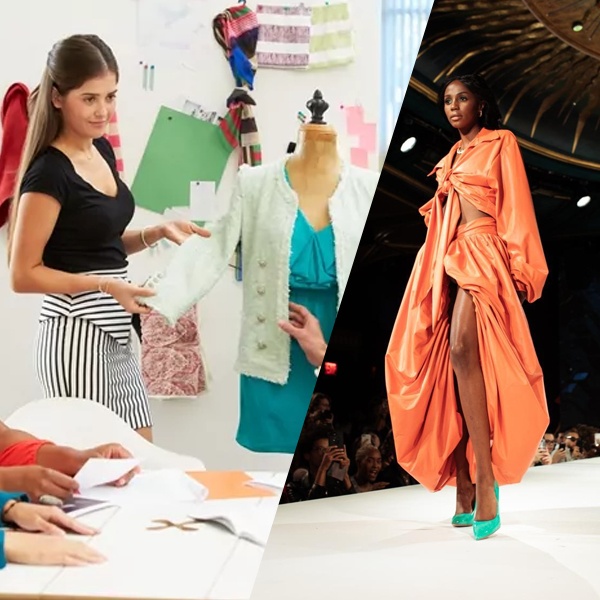
India's
fashion industry employs over 300,000 professionals across design, modelling and allied sectors. Metro cities like Delhi, Mumbai, Bengaluru and Kolkata account for 70% of fashion job opportunities, hosting major platforms like Lakme Fashion Week and India Fashion Week.
While metro cities offer 70% more opportunities, digital platforms now enable designers and models in tier-2 cities to access national and international markets remotely. On the global side, Indian designers now take part in international residencies, fashion schools and brand tie-ups in cities like London and Milan. Models too aim for New York, Paris and Milan, though entry needs strong portfolios and good English.
Thanks to technology, both designers and models can now work remotely - from digital design projects to e-commerce shoots for global brands. Yet, visa rules and migration costs can still be tricky. To shine in both markets, strong communication, cultural flexibility and awareness of
global trends matter most. India gives a strong start, but those who adapt and stay curious find their way to the global stage.
Future of Fashion Designing & Modelling Careers in 2026
Fashion is changing fast and both designers and models are learning to grow with it. Here's what the future looks like for these two creative careers.
- Digital Transformation - Virtual runways, 3D-printed designs and CGI models are reshaping the industry. NFT-based fashion creates new revenue streams for both designers and models.
- Creator Economy Growth - 65% of fashion professionals now earn through Instagram collaborations. Models with 50K+ followers earn 3x more than traditional agency-only models.
- Sustainability Matters - Consumers now expect fashion to be responsible. Designers focus on eco-friendly fabrics and ethical production. Models often represent sustainable and inclusive brands, promoting diversity and fair fashion.
- Tech in Every Thread - AI tools help designers predict trends and design faster using 3D software. Agencies also use AI-based casting systems to match models with the right campaigns.
How to Choose Between Fashion Designing and Modelling
Deciding between fashion designing and modelling can feel overwhelming. The key is to match your strengths, interests and lifestyle with the demands of each career. Here's a clear guide to help you decide and take actionable steps.
- Step 1 : Self-Assessment -
- For Design: Do you enjoy creating, sketching, and technical work?
- For Modelling: Are you comfortable with public attention and appearance standards?
- Personality Match: Designers often prefer behind-the-scenes roles; models thrive in spotlight.
- Step 2 : Skill Development -
- Design Path:Enroll in diploma/degree programs (₹2-10 lakh investment), build portfolio, secure internships
- Modelling Path:Attend grooming workshops, create comp card, join reputed agency (avoid upfront fees)
- Step 3 : Financial Planning - Both careers have irregular initial income. Budget for:
- Design:Course fees, materials, software subscriptions
- Modelling:Portfolio shoots, travel, grooming expenses
- Step 4 : Build Industry Network -
- Attend fashion weeks and industry events
- Connect with professionals on LinkedIn
- Join fashion councils or modelling associations
- Follow established designers/models for mentorship opportunities
- Pro Tip - Many successful professionals blend both careers - consider starting with one and expanding skills into the other as your brand grows.
Both fashion designing and modelling offer rewarding careers in India's booming ₹6+ lakh crore fashion industry. Your choice depends on whether you prefer creating fashion or showcasing it.
Ready to start your fashion career?
- Explore Fashion Design Courses for comprehensive training.
- Book a counselling session to discuss your career path.
Take the next step today - your
fashion career awaits..!
FAQ about Fashion Designing Career v/s Modelling Careers
1. Which career has more scope in India - Fashion Designing or Modelling?
Fashion designing offers longer career sustainability (30-40 years) with average annual earnings of Rs.3-10 lakh for established designers. Modelling provides higher initial visibility but shorter peak years (typically ages 18-30), with per-project earnings of Rs.20,000 - Rs.5 lakh depending on brand and experience. For long-term career stability, fashion designing has more scope.
A degree isn't mandatory but helps a lot. Institutes like NIFT, Pearl Academy and Waves Institute give structured learning, internships and strong industry exposure.
Start with a simple portfolio, attend open auditions and connect with trusted agencies. Never pay large registration fees - genuine agencies earn from your booked work, not from your pocket.
4. What kind of investment does fashion designing need?
If you are freelancing or starting a small label, expect basic costs for fabrics, tailoring and marketing. Begin small, test your designs and grow gradually.
5. Is there an age limit for modelling?
There is no strict rule. Commercial and catalogue models can work from teenage years to mid-thirties, while runway modelling usually starts earlier. It depends on the brand's requirements.
6. How much can beginners earn in these fields?
A fresh designer may earn Rs. 15,000 - Rs. 30,000 per month, while new models earn Rs. 5,000 - Rs. 25,000 per shoot. Income grows fast with experience, reputation and networking.
7. What skills matter most for fashion designers today?
Creativity, sketching, digital design (like Adobe Illustrator), fabric knowledge and a good sense of trends. Business and communication skills are equally important.
8. How can I avoid modelling scams on social media?
Be cautious of instant fame offers or agencies asking for upfront money. Check reviews, ask for past client names and never share personal details with unknown recruiters.
9. Can I earn as a freelancer in fashion design?
Absolutely. Many Indian designers freelance online, sell through Instagram or collaborate with local boutiques. It is flexible and low-cost to start.
10. How do I build a strong fashion design portfolio?
Include sketches, design concepts, photos of finished outfits and any internships or projects you have done. Keep it clean, creative and updated.
11. Is social media important for models and designers?
Very. Instagram and LinkedIn help you showcase work, connect with brands and attract collaborations. Treat your profile like a professional portfolio.
12. Can I work abroad as a model or designer from India?
Yes, if you have the right exposure and portfolio. Many Indian talents get opportunities through reputed agencies and fashion shows with international tie-ups.
13. How do I stay mentally fit in such competitive careers?
Balance your routine. Eat well, sleep enough, take breaks from social media and talk to mentors or peers. Both fields demand confidence and consistency more than perfection.


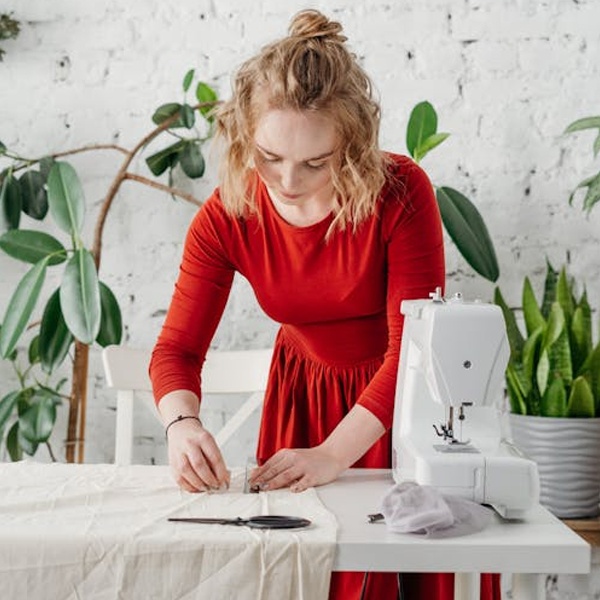
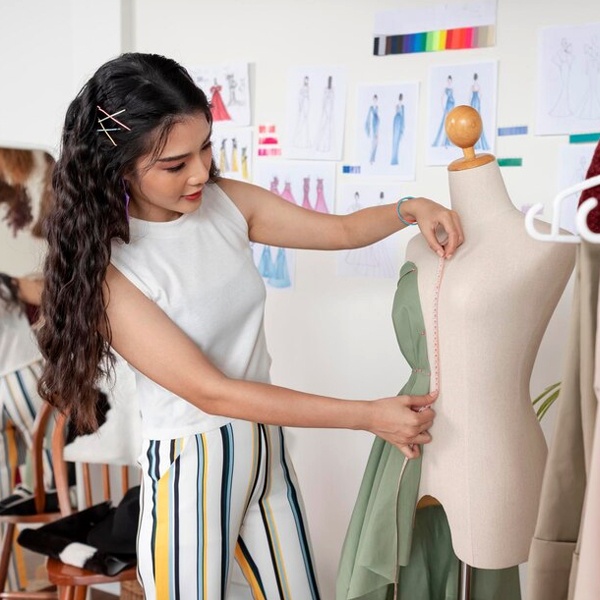
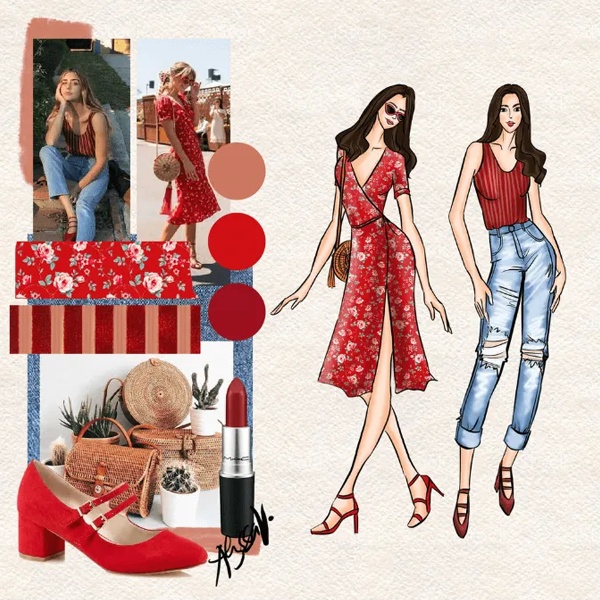

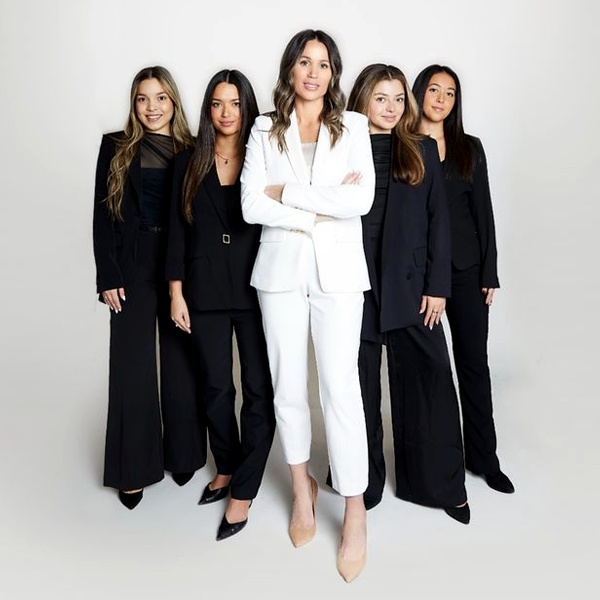
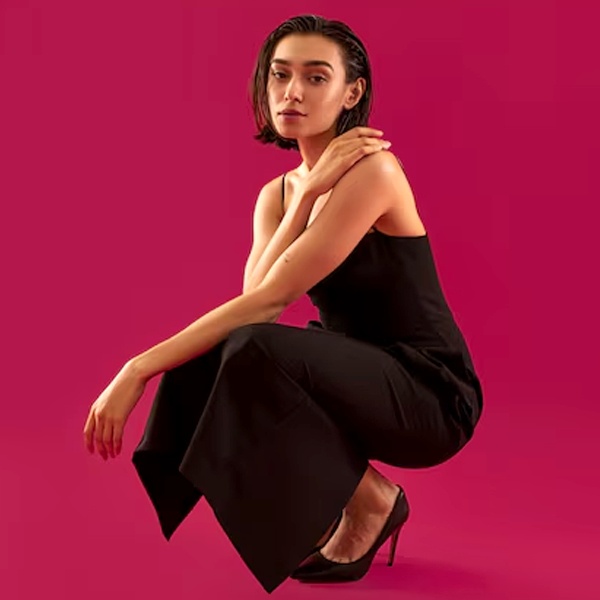

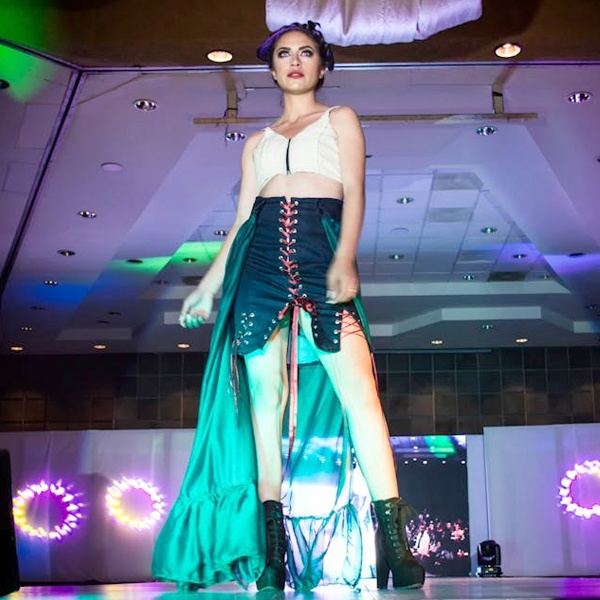
 CONTACT USWaves Institute of Fashion Designing,
CONTACT USWaves Institute of Fashion Designing,